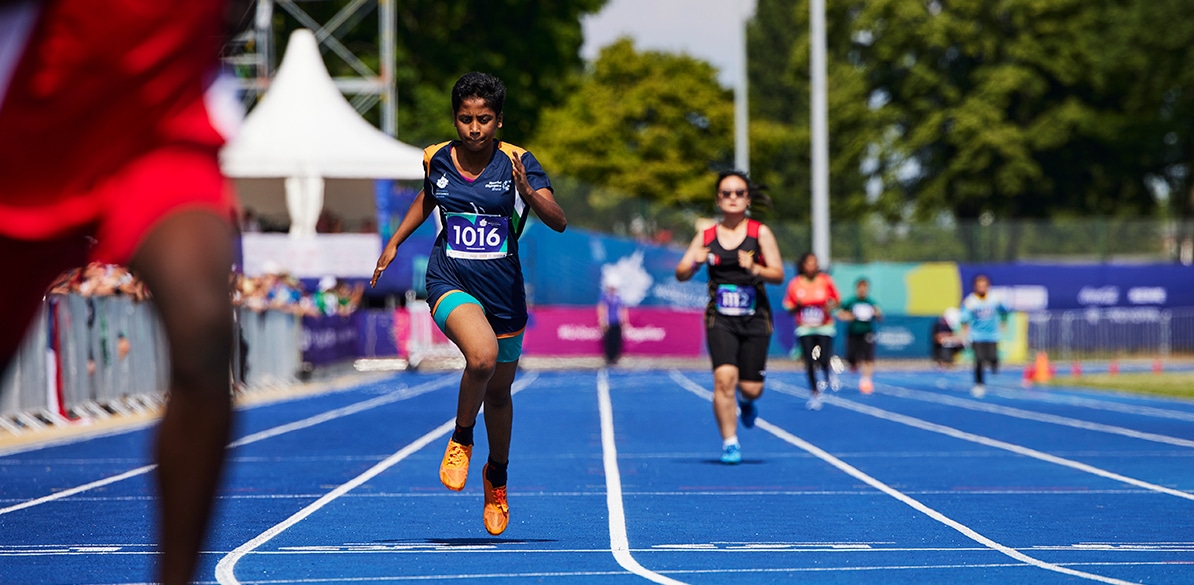Special Olympics
Recipient of the Award for the Entity with the Best Track Record in Social Causes

The international sports organization Special Olympics promotes sports training and participation in competitions in different sports for people with intellectual disabilities. The goal is to help them develop physical skills, strengthen their self-esteem, and improve their interaction with their families, with other Special Olympics athletes and with the rest of society.
The entity organizes more than 100,000 events each year, including the Special Olympics World Games, an Olympics that benefits children in need.
Since its founding in 1968, Special Olympics, an IOC-recognized entity, has provided opportunities for integration through sport in every country in which it operates.
What are the Special Olympics World Games?
The Special Olympics World Games is an international sporting event designed to highlight the skills and achievements of people with intellectual disabilities. These games, which alternate summer and winter editions every two years, bring together thousands of athletes who compete for a whole week, supported by approximately 350,000 volunteers. The media coverage of these games allows the stories and triumphs of the participants to be seen by millions of people around the world, raising awareness of their abilities.
Participation in the Special Olympics is open to anybody with an intellectual disability (from the age of 8) who wants to play a sport, and they can choose from 32 Olympic disciplines. The athletes are matched according to their abilities and age to ensure that each competition is fair and inclusive, regardless of physical limitations.
Programs and sports offered by Special Olympics
Special Olympics organizes training and competitions throughout the year in more than 170 countries, including all cities in Spain. In Spain, 16 summer and winter Olympic sports are offered, including athletics, swimming, tennis, table tennis, badminton, handball, bocce, soccer, basketball, sailing, floorball, cycling and paddle tennis. No matter the age or skill level, there is always a sport suitable for each athlete and the possibility to change disciplines.
In addition, Special Olympics facilitates access to sports for individuals who face the greatest hurdles through various specific programs that it implements in collaboration with social entities.
The influence of Special Olympics transcends the sporting arena, extending into areas such as health, education and social welfare, both globally and locally. In addition to providing inclusive sporting events, the organization is committed to ensuring that healthcare is accessible to all, and it works to provide training for doctors, to ensure that they can provide their patients with quality care.
In Unified Schools, Special Olympics promotes inclusion from an early age by bringing together young people, with and without intellectual disabilities, on sports teams. This approach fosters integration and the development of leadership skills, preparing young people to take active roles in the organization, in their communities, and in their future workplaces.
How to participate in the Special Olympics?
To take part in the Special Olympics, anyone who is interested should contact the organization for information on available programs and registration requirements. Participation is open to anyone with an intellectual disability who wishes to compete and be part of this inclusive experience.
The Role of Inclusion in the Special Olympics
The main goal of Special Olympics is the comprehensive inclusion of people with intellectual disabilities in our society; and one of the tools for achieving this is the Unified Sport program. It consists of mixing athletes with intellectual disabilities (Special Olympics athletes) with athletes who do not have disabilities (teammates) in team sports, both in training and in competition scenarios. The ratio of athletes to teammates, as well as the levels and ages, varies by sport.
The Unified Sports program is fundamental in promoting inclusion through sports, demonstrating how playing sports as a team can be a powerful tool for social integration. In 2011, this program was consolidated in Special Olympics Spain with the National Unified Basketball Tournament and the National Unified 7-a-side Football Championship, events that are held annually.
